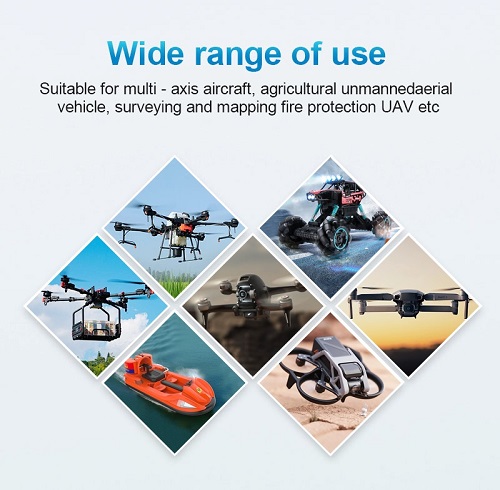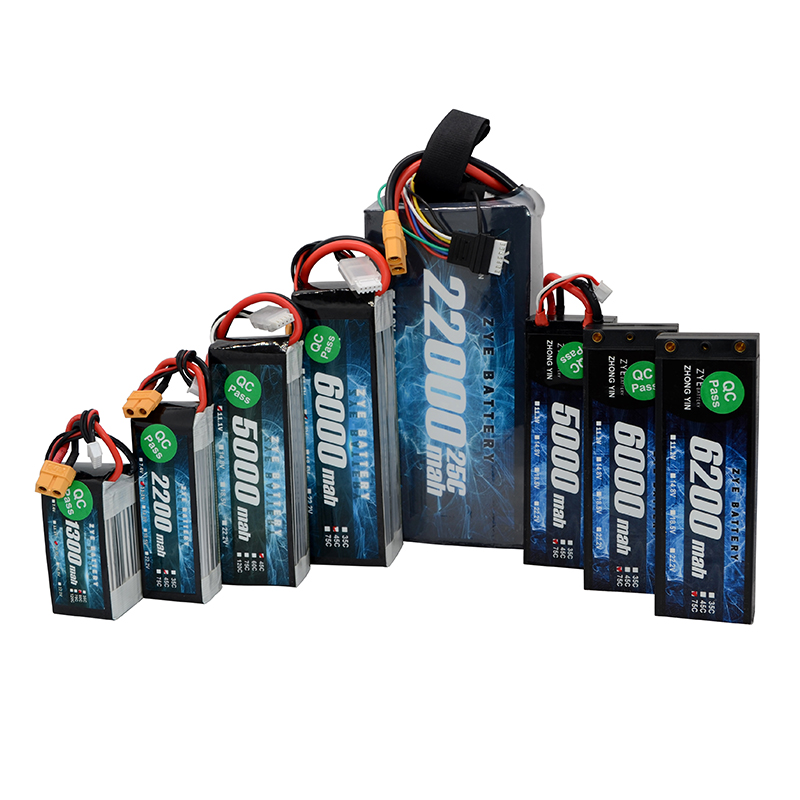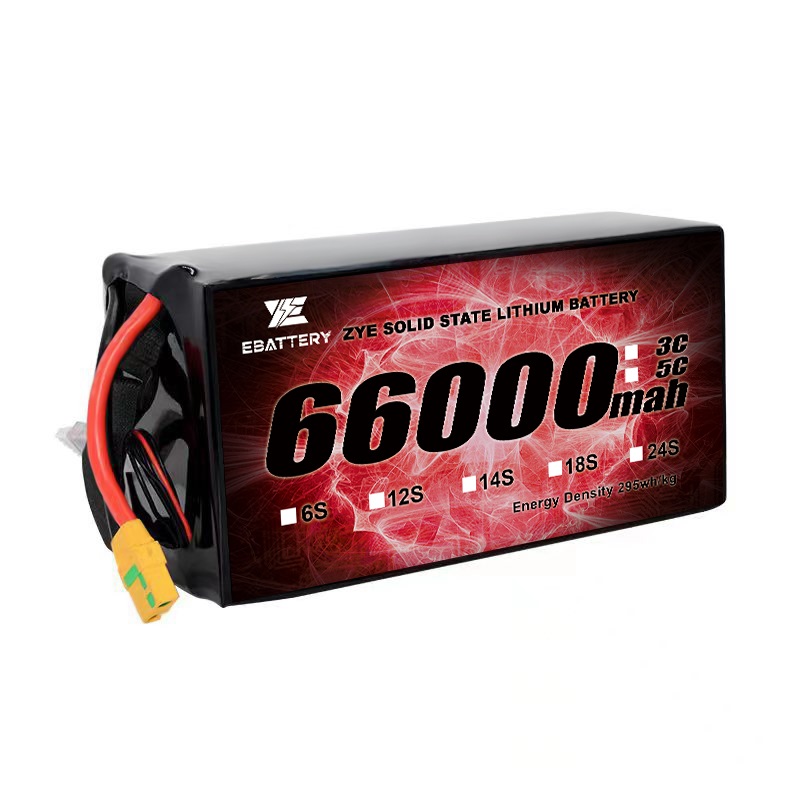Can You Use a LiPo Battery for Solar Energy Storage?
2025-07-03
As the world shifts towards renewable energy sources, solar power has emerged as a popular and efficient option for both residential and commercial applications. One crucial aspect of harnessing solar energy is storing it for use during non-sunlight hours or cloudy days. This brings us to an intriguing question: Can you use a LiPo battery for solar energy storage? Let's delve into this topic and explore the potential of LiPo batteries in solar energy systems.
Are LiPo Batteries Good for Daily Solar Charging?
LiPo (Lithium Polymer) batteries have gained popularity in various applications due to their high energy density and lightweight nature. When it comes to solar energy storage, these batteries offer several advantages that make them a compelling choice for daily charging cycles.
Advantages of LiPo Batteries for Solar Storage
1. High Energy Density: LiPo batteries can store a significant amount of energy in a compact size, making them ideal for solar installations with limited space.
2. Lightweight Design: The lightweight nature of LiPo batteries makes them easier to install and transport, particularly for portable solar setups.
3. Fast Charging: LiPo batteries can handle higher charging rates, allowing for quicker energy storage during peak sunlight hours.
4. Low Self-Discharge: These batteries maintain their charge well over time, ensuring minimal energy loss when not in use.
Considerations for Daily Solar Charging
While LiPo batteries offer numerous benefits, there are some factors to consider for daily solar charging applications:
1. Temperature Sensitivity: LiPo batteries can be sensitive to extreme temperatures, which may affect their performance in outdoor solar installations.
2. Lifespan: The number of charge cycles a LiPo battery can undergo may be limited compared to some other battery types, potentially affecting long-term use in solar systems.
3. Safety Precautions: Proper handling and storage of LiPo batteries are crucial to prevent potential safety hazards.
Can Solar Controllers Work with LiPo Packs?
Solar controllers play a vital role in regulating the charging process of batteries in solar energy systems. The compatibility of solar controllers with LiPo battery packs is an important consideration for those looking to integrate these batteries into their solar setups.
Compatibility Factors
1. Voltage Regulation: Most solar controllers are designed to work with various battery types, including lithium-based batteries like LiPo. However, it's crucial to ensure that the controller can provide the appropriate voltage regulation for LiPo batteries.
2. Charging Profiles: Advanced solar controllers often feature programmable charging profiles, which can be adjusted to suit the specific requirements of LiPo batteries.
3. Battery Management System (BMS): LiPo battery packs typically come with built-in BMS, which may need to communicate effectively with the solar controller for optimal performance and safety.
Selecting the Right Solar Controller
When choosing a solar controller for use with LiPo battery packs, consider the following:
1. MPPT vs. PWM: Maximum Power Point Tracking (MPPT) controllers are generally more efficient and better suited for use with LiPo batteries compared to Pulse Width Modulation (PWM) controllers.
2. Voltage and Current Ratings: Ensure that the solar controller's voltage and current ratings are compatible with your LiPo battery pack and solar panel specifications.
3. Smart Features: Look for controllers with features like temperature compensation and adjustable charging parameters to optimize LiPo battery performance and longevity.

DIY Solar Banks: How to Safely Integrate LiPo Batteries?
For DIY enthusiasts looking to create their own solar energy storage solutions, integrating LiPo batteries can be an exciting prospect. However, it's crucial to approach this task with caution and follow proper safety procedures.
Safety Precautions for LiPo Integration
1. Battery Selection: Choose high-quality LiPo batteries from reputable manufacturers to ensure reliability and safety.
2. Proper Enclosure: Use a fire-resistant enclosure specifically designed for LiPo batteries to minimize risks in case of thermal events.
3. Ventilation: Ensure adequate ventilation in the battery storage area to prevent heat buildup and maintain optimal operating temperatures.
4. Balance Charging: Implement a balance charging system to ensure each cell in the LiPo pack is charged evenly, preventing overcharging and potential hazards.
Steps for Safe LiPo Integration in DIY Solar Banks
1. Design Your System: Carefully plan your solar bank, including the number of LiPo batteries needed, their configuration, and how they'll interface with your solar panels and charge controller.
2. Install Protection Circuits: Incorporate overcurrent, overvoltage, and undervoltage protection circuits to safeguard your LiPo batteries.
3. Implement Temperature Monitoring: Use temperature sensors to monitor battery temperature and implement automatic cutoffs if temperatures exceed safe limits.
4. Regular Maintenance: Establish a routine for inspecting and maintaining your DIY solar bank, including checking for any signs of swelling or damage in the LiPo batteries.
5. Educate Yourself: Stay informed about LiPo battery technology and best practices for their use in solar energy storage systems.
Legal and Safety Considerations
Before embarking on a DIY solar bank project with LiPo batteries, consider the following:
1. Local Regulations: Check local laws and regulations regarding the installation of solar energy systems and the use of LiPo batteries.
2. Insurance Implications: Consult with your insurance provider to understand how a DIY solar installation might affect your coverage.
3. Professional Consultation: Consider seeking advice from a certified electrician or solar energy professional to ensure your DIY setup meets safety standards.
In conclusion, while LiPo batteries offer promising potential for solar energy storage, their integration requires careful consideration of safety, compatibility, and performance factors. As technology continues to evolve, we may see more specialized solutions that optimize the use of LiPo batteries in solar applications.
If you're looking for high-quality LiPo batteries for your solar energy storage needs, consider exploring the range of products offered by Ebattery. Our expert team can help you find the perfect solution for your specific requirements. For more information or to discuss your project, please don't hesitate to reach out to us at cathy@zyepower.com.
References
1. Smith, J. (2022). "Advances in Lithium Polymer Batteries for Renewable Energy Storage." Journal of Sustainable Energy, 15(3), 245-260.
2. Johnson, A., & Brown, T. (2021). "Comparative Analysis of Battery Technologies for Solar Energy Systems." Renewable and Sustainable Energy Reviews, 78, 1122-1135.
3. Green, M. (2023). "Safety Considerations in DIY Solar Energy Storage Systems." International Journal of Electrical Power & Energy Systems, 140, 108-120.
4. Lee, S., & Park, H. (2022). "Optimization of Solar Charge Controllers for Various Battery Chemistries." IEEE Transactions on Power Electronics, 37(4), 4500-4512.
5. Wilson, R. (2023). "The Future of LiPo Batteries in Renewable Energy Applications." Energy Storage Materials, 45, 78-92.
























































